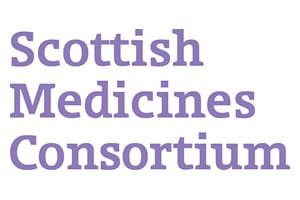 The Scottish Medicines Consortium has approved Bristol-Myers Squibb’s immuno-oncology therapy Opdivo in combination with Yervoy for use by NHS Scotland as a first-line treatment of advanced skin cancer.
The Scottish Medicines Consortium has approved Bristol-Myers Squibb’s immuno-oncology therapy Opdivo in combination with Yervoy for use by NHS Scotland as a first-line treatment of advanced skin cancer.
The ruling provides advanced melanoma patients with an alternative treatment option, having shown “clinically important and statistically significant improvement” in progression-free survival in a phase III study.
Taken together, Opdivo (nivolumab) and Yervoy (ipilimumab) extended average survival to 11.5 months, compared to 6.9 months and 2.9 months for Opdivo and Yervoy respectively.
However the SMC did not approve BMS’ application for use of Opdivo in kidney cancer, and rejected the drug as a second-line treatment for advanced renal cell carcinoma citing its lack of cost-effectiveness.
Ben Hickey, BMS UK & Ireland’s general manager, said: “We are very happy for Scottish melanoma patients and their families who will now have access to the nivolumab plus ipilimumab combination therapy for melanoma.
“Our aim is to ensure all eligible patients in the UK are able to receive treatment with our innovative medicines and we will continue to work with the SMC to find a way forward for kidney cancer patients in Scotland.”
Meanwhile, Gilead Sciences’ chronic hepatitis C virus infection therapy Epclusa (sofosbuvir/velpatasvir) received SMC backing for the treatment of patients with genotype 3 (GT3).
The once-daily oral treatment has been endorsed for as a 12-week scheme due to data showing it to significantly improve sustained virologic suppression in this indication over the current sofosbuvir plus ribavin 24-week course.
The regulator also accepted Baxalta’s Oncaspar (pegaspargase) for NHS use, approving the drug as part of an antineoplastic combination therapy for paediatric and adult patients with acute lymphoblastic leukaemia.
The rare blood cancer therapy was recommended in this indication by NICE in August this year, which seconded the European Medicine Agency’s call for a post-authorisation study into Oncaspar’s clinical effectiveness as a condition of its approval.
AstraZeneca’s rare ovarian cancer therapy Lynparza (olaparib) has been endorsed as a maintenance treatment for patients who have undergone platinum-based chemotherapy for the incurable condition.
Approved by the SMC in relapsed BRCA-mutated high-grade serious epithelial ovarian, fallopian tube and primary peritoneal cancer, the drug has demonstrated a four-month survival benefit over placebo.
Amicus Therapeutics’ Galafold (migalastat) has also received the go-ahead, and has been sanctioned by the SMC for the treatment of adults with Fabry disease, an incurable inherited genetic disorder.
The oral alternative, which was backed by NICE last month, will be available to male patients with classic mutations at diagnosis and male and female patients with later onset mutations and greater enzyme activity after evidence of renal, cardiac or neurovascular disease or gastrointestinal symptoms.




